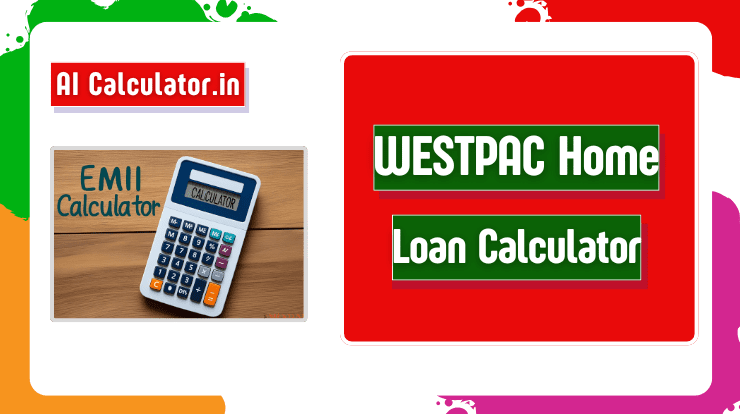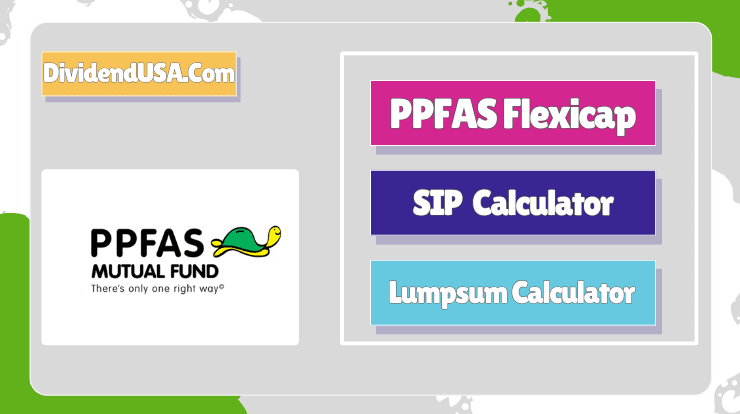Join WhatsApp Group
Join NowAlberta Income Tax Calculator
Disclaimer: This calculator is for informational purposes only. Tax rates are approximate for 2025 and may vary. Please consult a professional for personal advice.
What is the Alberta Income Tax Calculator?
An Alberta income tax calculator is a digital tool designed to estimate your total tax liability, combining federal and Alberta provincial taxes for a given year. It’s tailored for residents, factoring in Alberta’s specific tax rates and credits, which differ from other provinces due to its flat 10% rate up to $148,269 in 2025.
These calculators, available on platforms like Wealthsimple, TaxTips.ca, or TurboTax, take your income, deductions, and credits as inputs to compute your tax payable and net income. They’re ideal for:
- Salaried employees planning budgets.
- Self-employed individuals estimate quarterly payments.
- Retirees calculating tax on pensions or dividends.
- Newcomers are comparing Alberta to other provinces.
In 2025, with Alberta’s no-sales-tax advantage and federal rate adjustments, these tools are crucial for answering “how much tax do I pay in Alberta?” They handle complexities like progressive brackets and tax credits, saving you from manual math.
Table of Contents
Alberta Income Tax Rates 2025
Alberta’s tax system is straightforward compared to other provinces, using a flat 10% rate for most incomes, with progressive brackets kicking in at higher levels. Combined with federal taxes, your total tax rate depends on your taxable income. Below are the 2025 rates, reflecting federal changes (the lowest bracket dropping to 14% mid-year, averaging 14.5%).
Alberta Provincial Tax Rates 2025
| Taxable Income Range | Alberta Tax Rate |
|---|---|
| $0 – $148,269 | 10% |
| $148,270 – $177,922 | 12% |
| $177,923 – $246,752 | 13% |
| $246,753 – $355,845 | 14% |
| Over $355,845 | 15% |
Federal Tax Rates 2025
| Taxable Income Range | Federal Tax Rate |
|---|---|
| $0 – $55,867 | 14.5% (effective) |
| $55,868 – $111,733 | 20.5% |
| $111,734 – $173,205 | 26% |
| $173,206 – $246,752 | 29% |
| Over $246,752 | 33% |
Note: Federal rates apply across Canada, but Alberta’s provincial rates are lower than many provinces, especially for incomes below $148,269.
Federal vs Provincial Tax in Alberta
Federal taxes fund national programs like healthcare, while Alberta’s provincial taxes support local services like education and infrastructure. Both are calculated on your taxable income (gross income minus deductions), but Alberta’s flat rate simplifies provincial math.
For example, on $70,000 taxable income:
- Federal: First $55,867 at 14.5% = $8,101; next $14,133 at 20.5% ≈ $2,897. Total ≈ $10,998.
- Alberta: $70,000 at 10% = $7,000.
Combined marginal rate: 14.5% + 10% = 24.5% for the first bracket, rising as income increases. An Alberta income tax calculator automates these layered calculations, factoring in credits to reduce your bill.
How to Use the Alberta Income Tax Calculator (Step-by-Step)
Using an Alberta income tax calculator is beginner-friendly. Here’s a step-by-step guide for 2025:
- Choose a Reliable Tool: Use trusted platforms like TaxTips.ca, TurboTax, or Canada.ca’s calculators.
- Select Tax Year: Ensure it’s set to 2025 for updated rates.
- Enter Income Details: Input all income sources (salary, dividends, etc.).
- Add Deductions: Include RRSP contributions, union dues, etc.
- Apply Credits: Select applicable credits (e.g., basic personal amount).
- Specify Alberta Residency: This applies to provincial rates.
- Run the Calculation: Get your tax estimate and net income.
- Review and Adjust: Test scenarios like extra income or deductions.
This process makes it easy to calculate income tax in Alberta, even for complex situations like self-employment.
Required Inputs
To get accurate results, provide:
- Total Income: Salary, bonuses, dividends, rental income, etc.
- Taxable Income: After deductions like RRSP or childcare.
- Dividend Type: Eligible (38% gross-up) or non-eligible (15% gross-up) for dividend tax credits.
- Deductions: RRSP, union dues, medical expenses.
- Credits: Basic personal amount ($16,593 federal, $21,885 Alberta in 2025), tuition, etc.
- Province: Select Alberta for correct rates.
Having these ready ensures precise Alberta federal and provincial tax estimates.
Outputs You Receive
The calculator delivers:
- Total Tax Payable: Federal + Alberta tax before credits.
- Net Tax After Credits: Reduced by applicable credits.
- After-Tax Income: What you keep.
- Effective Tax Rate: Actual percentage of income paid in tax.
- Marginal Tax Rate: Rate on your next dollar earned.
- Breakdown: Federal vs. provincial contributions.
These outputs help you plan for savings, investments, or tax optimisation.
Example Calculation for Alberta Residents
Let’s calculate taxes for an Alberta resident with $70,000 taxable income in 2025, assuming no extra deductions beyond the basic personal amount.
Step 1: Federal Tax
- Basic personal amount: $16,593 (non-refunded credit at 14.5% = $2,406 credit).
- Taxable income after credit: $70,000 (simplified, assuming credit applies fully).
- First $55,867 at 14.5% = $8,101.
- Next $14,133 ($70,000 – $55,867) at 20.5% = $2,897.
- Total federal tax before credit: $10,998.
- After basic credit: $10,998 – $2,406 ≈ $8,592.
Step 2: Alberta Tax
- Alberta basic amount: $21,885 (credit at 10% = $2,189).
- $70,000 at 10% = $7,000.
- After credit: $7,000 – $2,189 = $4,811.
Step 3: Total
- Total tax: $8,592 + $4,811 ≈ $13,403.
- After-tax income: $70,000 – $13,403 = $56,597.
- Effective tax rate: $13,403 / $70,000 ≈ 19.15%.
A calculator automates this, showing you keep about $56,597 after taxes.
Benefits of Using an Online Alberta Income Tax Calculator
Using an online Alberta income tax calculator offers:
- Speed: Instant results vs. manual calculations.
- Accuracy: Handles complex brackets and credits.
- Scenario Testing: Try different incomes or deductions.
- Budget Planning: Know your net income for expenses.
- Tax Optimisation: Identify credits to lower taxes.
- Free Access: Many tools are no-cost (e.g., TaxTips.ca).
- User-Friendly: Designed for non-experts.
These make it a must-have for Albertans planning their finances.
Common Deductions and Credits in Alberta
Maximise your refund with these:
- Deductions:
- RRSP contributions (up to your limit).
- Union or professional dues.
- Childcare expenses.
- Medical expenses (exceeding 3% of income or $2,708).
- Credits:
- Basic personal amount ($21,885 Alberta, $16,593 federal).
- Canada employment amount (up to $1,433).
- Tuition credits for students.
- Dividend tax credits (15.0198% federal for eligible dividends).
- Disability or caregiver credits, if applicable.
Check CRA and Alberta guidelines for eligibility. Calculators often include these automatically.
Alberta vs Other Provinces (Comparison Table)
Alberta’s taxes are among Canada’s lowest. Here’s a comparison with Ontario for 2025 (top bracket rates for $100,000 income):
| Aspect | Alberta | Ontario |
|---|---|---|
| Provincial Rate | 10% (up to $148,269) | 11.16% (on $78,783-$150,000) |
| Combined Marginal Rate | 30.5% (federal 20.5% + 10%) | 31.66% (20.5% + 11.16%) |
| Basic Personal Amount | $21,885 | $12,399 |
| Dividend Tax (Eligible) | ~12.24% effective | ~13.95% effective |
| Sales Tax | None | 13% HST |
Alberta’s flat rate and no PST make it tax-friendly, especially for mid-income earners.
Frequently Asked Questions (FAQ)
What is an Alberta income tax calculator?
A tool to estimate federal and provincial taxes based on your income and credits.
What are Alberta tax rates 2025?
Provincial: 10% up to $148,269, then 12-15%. Federal: 14.5% to 33%. See tables.
How much tax do I pay in Alberta on $50,000?
Roughly $7,250 total (14.5% federal + 10% Alberta, minus credits), per calculator.
How do Alberta federal and provincial taxes work?
Federal taxes apply nationwide; Alberta adds a flat 10% up to $148,269, plus credits.
Can I calculate the income tax in Alberta for free?
Yes, try TaxTips.ca, Wealthsimple, or CRA’s online tools.
How does Alberta compare tax-wise?
Lower than Ontario or BC due to flat rates and no sales tax.
Conclusion
An Alberta income tax calculator is your ticket to stress-free tax planning in 2025. With Alberta’s low provincial rates, generous credits, and no sales tax, residents enjoy a tax-friendly environment. Whether you’re budgeting for a family, optimising investments, or planning self-employment, these tools clarify how much tax you pay in Alberta. Use one today to estimate your net income, explore deductions, and compare with other provinces. Stay ahead of tax season and keep more of your hard-earned money!



